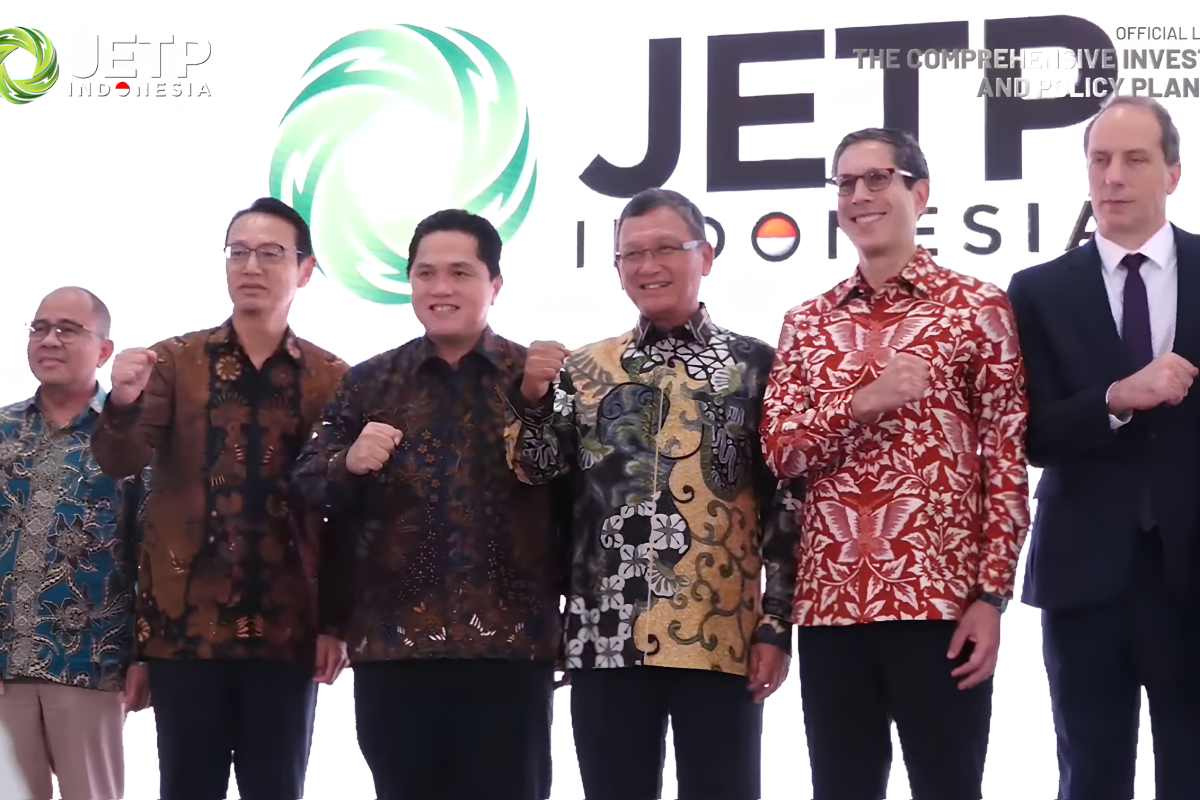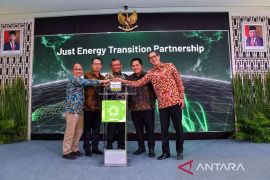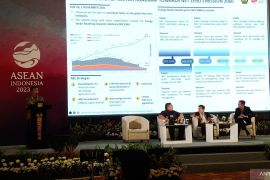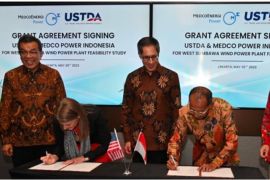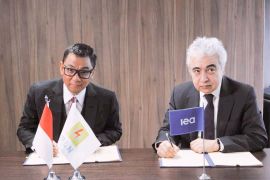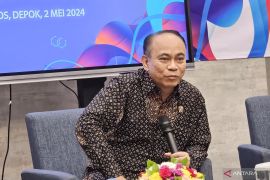This CIPP document provides a strategic road map for an ambitious energy transition in Indonesia.Jakarta (ANTARA) - The Indonesian government formally unveiled the "Comprehensive Investment and Policy Plan (CIPP)," the investment policy and commitment document for the Just Energy Transition Partnership (JETP) funding program, on Tuesday.
Ad interim coordinating minister for maritime affairs and investment, Erick Thohir, said that the launch of the CIPP document marks an extraordinary relationship in which Indonesia and its partners are working together with the same vision to develop Indonesia.
"This CIPP document provides a strategic road map for an ambitious energy transition in Indonesia by considering challenges covering technical, financial, and, of course, social justice," the minister observed at the CIPP JETP unveiling event at the office of the Ministry of Energy and Mineral Resources (ESDM) in Jakarta.
According to Thohir, economic growth is the key to safeguarding citizens and enabling each country to secure better rights in facing uncertainty and the current global situation.
According to Minister of Energy and Mineral Resources, Arifin Tasrif, the JETP is part of Indonesia's efforts to accelerate the energy transition, as stated in the Enhanced Nationally Determined Contributions (ENDC) document.
"(By) Encouraging the acceleration of the energy transition in accordance with the commitment stated in the ENDC target, according to Indonesia's aspirations, we can achieve NZE (net zero emissions) by 2060," he asserted.
According to the CIPP document, under the JETP funding program, 20 billion US dollars will be mobilized to build a low-carbon economy in Indonesia. CIPP will be evaluated periodically so it can be adapted to the latest market developments and policy priorities.
The CIPP document envisages a decarbonization scenario with a joint conditional target for greenhouse gas emissions for the on-grid electricity sector of 250 million tons of CO2, with the share of renewable energy reaching 44 percent by 2030.
CIPP 2023 will focus on the on-grid electricity system. Meanwhile, for the off-grid electricity system, a more in-depth analysis will be conducted to determine a decarbonization strategy that is in accordance with Indonesia's industrialization and downstreaming initiatives.
Head of the JETP Secretariat, Edo Mahendra, pointed out that CIPP is not a policy document for the Indonesian government. However, the document can become a basis for formulating policies and making decisions
"All capital analysis and recommendations in this document are inputs; of course, they can be used by the Indonesian government," he added.
Related news: Concrete steps direly needed to face climate change impacts: President
Related news: Jokowi conveys 3 focuses of ASEAN Caucus, including energy transition
Translator: Farhan Arda Nugraha, Cindy Frishanti Octavia
Editor: Rahmad Nasution
Copyright © ANTARA 2023
